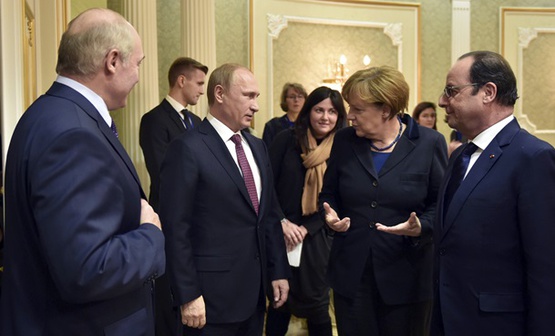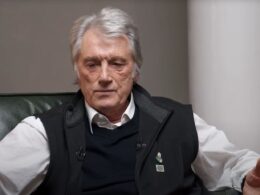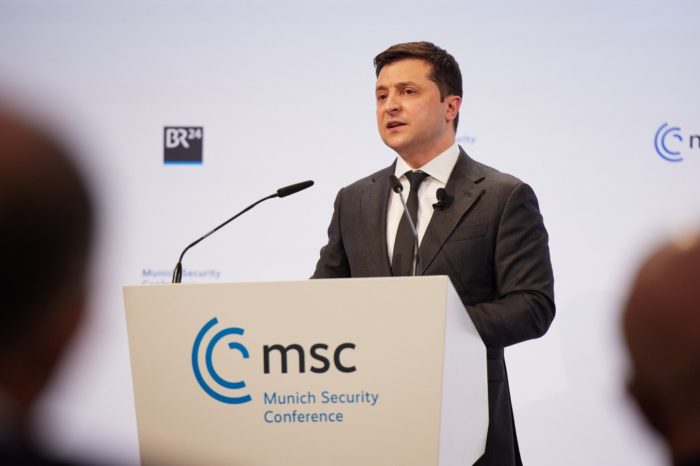European Union foreign ministers sharply criticized plans for Russian President Vladimir Putin to visit Budapest despite an International Criminal Court arrest warrant, exposing deep divisions as Hungary prepares to welcome the war crimes suspect for talks with US President Donald Trump.
The controversy centers on Budapest—the same city where Ukraine surrendered its nuclear arsenal in 1994 for security assurances Moscow now violates. Ukrainian President Volodymyr Zelenskyy warned against "another Budapest scenario" but would attend if included in talks with Trump and Putin. The planned summit follows August's Alaska meeting between Trump and Putin that produced no breakthrough, while Hungary's defiance of the ICC undermines European credibility on international law.
EU foreign ministers split into opposite camps on Putin's visit to Budapest
As they gathered on Monday for a meeting in Luxembourg, foreign affairs ministers of the European Union balanced between backing Trump's diplomatic efforts and upholding the International Criminal Court (ICC), which seeks Putin for the deportation and transfer of tens of thousands of Ukrainian children. However, some ministers voiced sharp criticism of Putin's anticipated Budapest visit.
EU High Representative Kaja Kallas said at a press briefing on 20 October that “…is not nice. To see that really a person, with an arrest warrant put by the ICC, is coming to a European country." She questioned whether the Budapest summit would yield results, noting that "Russia only understands strength and only negotiates when it is really put to negotiate."
Lithuanian Foreign Minister Kestutis Budrys, speaking to the press ahead of an EU foreign ministers' meeting in Luxembourg, stated that a "clear message" must be sent regarding Europe's stance on Russia. He declared, “We have to hold the principles of Europe that we all agree. And the only place for Putin in Europe that's in The Hague, in front of the tribunal, not in any of our capitals."
While calling it “useful” for Americans to be able to speak with Russians, French Foreign Minister Jean-Noël Barrot emphasized that Vladimir Putin's presence on EU territory has a specific purpose. “But this presence of Vladimir Putin on European Union soil only makes sense if it allows for an immediate and unconditional cease-fire,” he said, according to Euractiv.
Other Western European ministers adopted more accommodating positions.
When Euractiv asked if Hungary was setting the EU’s agenda, Denmark’s Foreign Minister Lars Løkke Rasmussen replied that Budapest is “just a venue for a meeting.”
According to Dutch Foreign Affairs Minister David van Weel, there are some reservations among European leaders about the location of the meeting. “On the other hand, the most important thing is that we have a negotiating table, that we get the parties around the table,” Weel said.
Germany’s Europe Minister, Gunther Krichbaum, commented, “It’s good that such a meeting is happening,” but also warned about the danger of excluding Ukraine from any potential agreement, according to Euractiv.
Spain's Foreign Minister José Manuel Albares encouraged Europeans to focus on what they can do to support Ukraine rather than "asking what others will do," Euronews reports.
The split reflects broader tensions over Hungary's democratic trajectory. In September 2022, the European Parliament declared Hungary "can no longer be considered a full democracy" in a 433-123 vote, characterizing it as an "electoral autocracy."
Hungary vows to ensure Putin's safe passage despite ICC obligations
Hungarian Foreign Minister Péter Szijjártó announced, "We are a sovereign country. We will respectfully welcome Russian President Vladimir Putin, receive him as a guest and provide conditions for his negotiations with the American president."
Trending Now
Hungarian Prime Minister Viktor Orbán posted on X, “The planned meeting between the American and Russian presidents is great news for the peace-loving people of the world. We are ready!”
Hungary announced its intention to withdraw from the ICC in April 2025 when Israeli Prime Minister Benjamin Netanyahu, also under an ICC arrest warrant, visited Budapest. The Hungarian parliament approved the withdrawal in May, but it remains technically bound by the Rome Statute until June 2026.
An ICC spokesperson told Euronews that "a withdrawal does not impact ongoing proceedings or any matter which was already under consideration by the Court prior to the date on which the withdrawal became effective."
History haunts: Where Ukraine gave up nukes for broken Russian promises
The choice of Budapest carries bitter historical irony for Ukraine. The 1994 Budapest Memorandum, signed in the Hungarian capital, saw Ukraine surrender the world's third-largest nuclear arsenal in exchange for security assurances from Russia, the United States, and the United Kingdom—promises Moscow now violates through its war of aggression.
Zelenskyy told reporters on 20 October he wants to avoid "another Budapest scenario," referencing the failed security guarantees. He also said that Ukraine would agree to a meeting in Budapest provided that it would take place in a trilateral format or in a "shuttle diplomacy" format, when Trump meets separately with him and Putin.
However, Zelenskyy expressed skepticism about Orbán's role, doubting the Hungarian leader's ability to "provide a balanced contribution."
Related:
- Hungary vows Putin honored guest treatment for Trump talks despite legal duty to arrest him
- "Putin outplayed Trump again": Russia pulls US president into Budapest meeting on its terms, says expert





